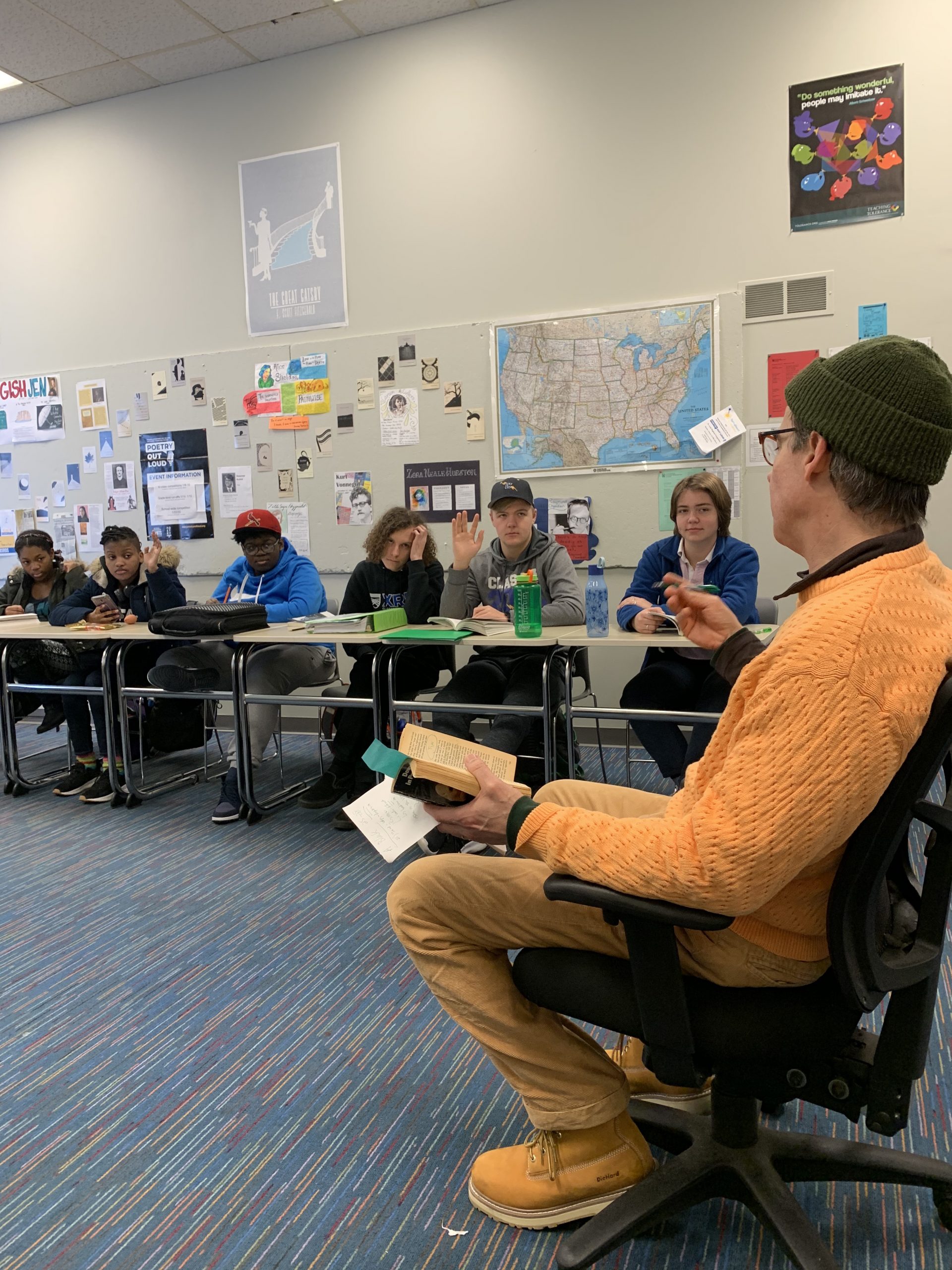
A frequent refrain you often hear from Sarah PW, Jason, and our faculty in the English department is “if you can read well and if you can write well, you can think well.” But reading well does not mean classroom reading lists must be exclusively filled with the classical canon that parents grew up with in their classrooms.

Matt Cooper discusses George Orwell with sophomores in World Literature II.
Today, Crossroads’ English curriculum bridges the classics with compelling modern works that provide students with “windows and mirrors” into characters and experiences historically not presented in literature. This emphasis on a diversity of experience and identity in our curriculum aligns with our mission and our value that “everyone has a voice, a place, and something to contribute.”
“We believe that what you read is not as important as how you read and how much you learn to love reading so we are willing to move away from a classical canon where all of the authors are dead,” says Sarah. “Dickens is great, but he is not better than Yaa Gyasi, who is writing and teaching right now. But we tend to not know because we’re versed in the classics.”
A typical syllabus at Crossroads includes works like Shakespeare, Dickens, Joyce, and Fitzgerald, as well as vocabulary lessons focused on words with Latin and Greek roots. What sets Crossroads apart is that teachers in the department work together to include books that serve as “windows and mirrors.”
Students explore other worlds through a “window,” with characters from life experiences different from theirs, connecting the humanity of their experiences. And giving Crossroads students a “mirror” means they now have the ability to see characters like themselves in compelling, challenging reading.
“Fifteen or 50 years ago, students would have never seen an African-American girl or boy on an adventure of their own,” says Sarah. “We’re seeking more stories, such as a young African-American boy who is the hero of a sci-fi story, or a young gay girl who is navigating school when all the rest of their friends are talking about their boyfriends. We’re succeeding at putting great literature in front of that experience and we can still teach them to be great readers and writers while diversifying our material.”
In middle school, students are reading a range of literature, from Homegoing by Yaa Gyasi, to Shakespeare and Steinbeck. In high school, students continue to be exposed to a wide body of contemporary and classical fiction, poetry, drama, and essays. Students are reading The Odyssey and A Thousand Splendid Suns; Frankenstein in the same year they read Refugees, and in 11th grade The Bluest Eye follows The Great Gatsby. Students who take AP Literature adhere closer to a “Great Books” curriculum in order to best prepare for the AP test in the spring.
Through exposure to a blend of contemporary and classical works and with the support of Crossroads faculty, students are able to gain a greater love for reading and develop as strong, independent, confident writers and thinkers, helping prepare them for the demands of college-level work.

